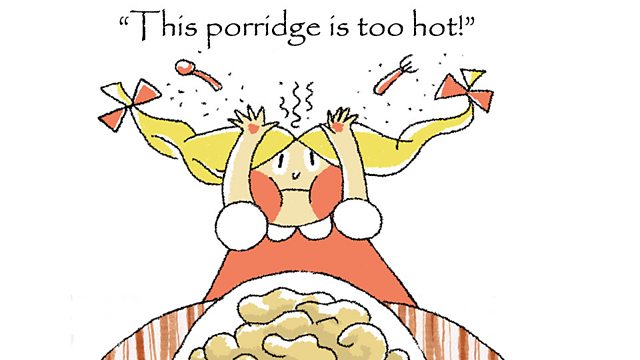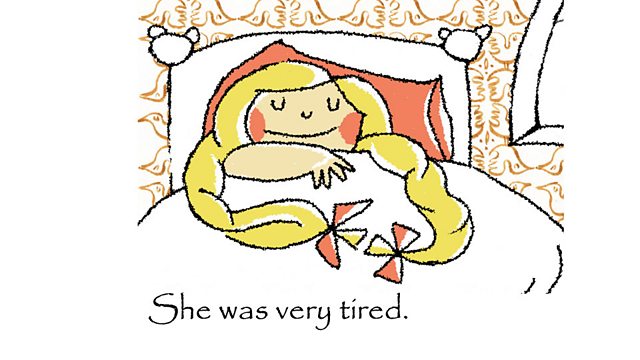Unit 19: A place to live
Goldilocks
Select a unit
- 1 Nice to meet you!
- 2 What to wear
- 3 Like this, like that
- 4 The daily grind
- 5 Christmas every day
- 6 Great achievers
- 7 The Titanic
- 8 Travel
- 9 The big wedding
- 10 Sunny's job hunt
- 11 The bucket list
- 12 Moving and migration
- 13 Welcome to BBC Broadcasting House
- 14 New Year, New Project
- 15 From Handel to Hendrix
- 16 What's the weather like?
- 17 The Digital Revolution
- 18 A detective story
- 19 A place to live
- 20 The Cult of Celebrity
- 21 Welcome to your new job
- 22 Beyond the planets
- 23 Great expectations!
- 24 Eco-tourism
- 25 Moving house
- 26 It must be love
- 27 Job hunting success... and failure
- 28 Speeding into the future
- 29 Lost arts
- 30 Tales of survival
Session 2
You might say that English is too confusing and there are too many rules. Have you really got enough time to learn them all? Well, it can be very difficult, that’s true. But don’t make excuses – this session will help you understand the words too, very and enough.
Activity 1
Modifying adjectives with 'too', 'very' and 'absolutely'
"This porridge is too hot!"
In Session 1, we heard the story of Goldilocks and the Three Bears. The young girl went into the bears' house, ate their porridge, sat in their chairs, and got into their beds! The bears found Goldilocks in the end, but she managed to escape and the story didn't have a bad ending.
But what language we can learn from the story of Goldilocks? We're going to look at some of the words from the story that indicate degree: too, very and enough. First, look at these pictures - what do you think the words mean? Then, read the grammar explanation and try the activity.
Read the text and try the activity
Have a look at this first picture.

Goldilocks is talking about the porridge and how hot it is. But what does she mean when she says it is too hot?
What about in this picture?

What does it mean when we say she was very tired?
Too + adjective
Let's look at the first example. The porridge was too hot. Could Goldilocks eat it? No. What about the second bowl? Well, that was too cold. Could she eat this bowl of porridge? Again, the answer is no. The word too shows there is a problem, or something bad. Look at some more examples.
Goldilocks sat in the first chair, but it was too big. (The problem is the size of the chair: it is big and Goldilocks is small, so she can't get comfortable.)
Goldilocks lay down in the first bed, but it was too hard. (This time, the problem is the softness of the bed. It's hard, so Goldilocks can't rest comfortably.)
I really like these boots, but they're too expensive. (The problem is the price of the boots: I can't afford to buy them.)
I was too busy to take a break, so I missed my TV programme. (I had a lot of work and this was a problem because I couldn't take a break and watch TV.)
The form is too + adjective.
- too hot
- too cold
- too big
BE CAREFUL: If we say a sentence with too in the negative form, then we mean it isn't a problem. The form is not + too + adjective.
I can eat this porridge - it's not too hot and it's not too cold.
Very + adjective
Goldilocks was very tired. Do you think this is just normal tiredness or something more? Well, the word very makes the adjective stronger. Goldilocks was very tired so she went to sleep in the baby bear's bed.
The form is very + adjective. Here are some more examples.
Papa bear was very angry because someone had slept in his bed.
I like your shoes - they're very nice!
That English test wasn't very difficult! Studying with BBC Learning English really helps!
BE CAREFUL: We don't use very with strong adjectives. Look here:
Goldilocks was terrified! (The word terrified already means 'very scared', so we don't say 'very terrified'.)
To make strong adjectives even stronger, use absolutely.
That was the worst play I have ever seen in my life - it was absolutely terrible!
I've been working day and night - I'm absolutely exhausted!
Other strong adjectives are: excellent, enormous, correct, incredible, dreadful, perfect. We hope that one day you will have absolutely excellent English!
To do
How confident are you now about too, very and strong adjectives? Try this quiz to see how well you know them.
Too, very, absolutely
4 Questions
Choose the best word for each gap.
Help
Activity
Choose the best word for each gap.
Hint
Goldilocks was so tired that she couldn't move - that was a problem for her...Question 1 of 4
Help
Activity
Choose the best word for each gap.
Hint
Is this a problem?Question 2 of 4
Help
Activity
Choose the best word for each gap.
Hint
Remember the rules about strong adjectives!Question 3 of 4
Help
Activity
Choose the best word for each gap.
Hint
Iis this sentence saying that English grammar is so difficult that you will never learn it?Question 4 of 4
Excellent! Great job! Bad luck! You scored:
Next
So, you've looked at two words we use to modify adjectives in a sentence: too and very. Too means there is some kind of problem and very makes adjectives stronger. You've also learnt about strong adjectives and absolutely.
Now it's time to learn how to use another word from Goldilocks: enough. We'll also look at using too with much and many.
Session Grammar
We use too and very with adjectives to talk about degree.
Too describes something negative or unwanted. Very makes the adjective stronger. The words not too with an adjective shows that there isn't a problem.
Malik: Those red shoes were very nice. Did you buy them?
Sarah: No - they were too small. I bought the green ones instead: they were the right size and not too expensive.We don't use very with strong adjectives. These examples are wrong:
The pianist was very excellent.
The Grand Canyon is very enormous.These examples are correct:
That movie was incredible.
Her performance was dreadful.
Use absolutely to make strong adjectives even stronger:That cake was absolutely delicious!